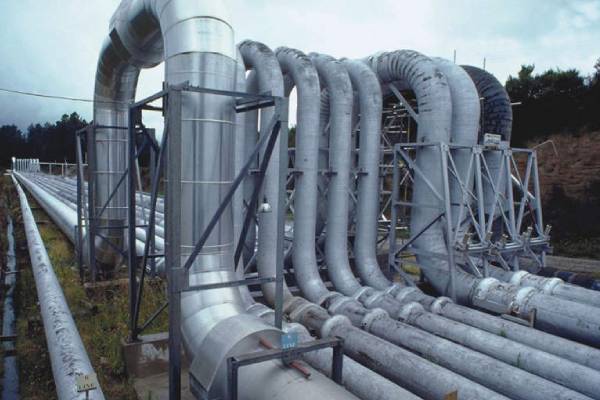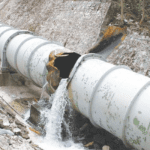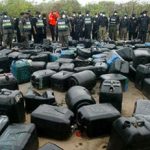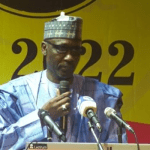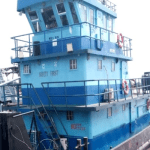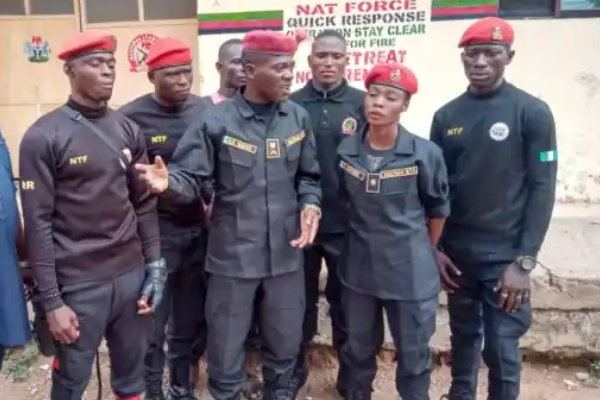The Petroleum and Natural Gas Senior Staff Association of Nigeria (PENGASSAN) has described oil theft and pipeline vandalism as organised crime.
In a letter to the Commissioner of Police, Lagos State, Abiodun Alabi, through the Assistant Commissioner of Police, Area F Command, John Sango, by the Chairman, PENGASSAN, Lagos Zone, Elam Abang, during a rally in Lagos to sensitise the public on oil theft and pipeline vandalism, he said statistics by the Nigerian Upstream Petroleum Regulatory Commission (NUPRC) showed that the country lost about $3.2 billion (about N1.36 trillion) in crude oil theft between January, last year and February, this year.
According to him, this has affected the production capacity of the Organisation for Petroleum Exporting Countries, (OPEC), as over 95 per cent of oil production is lost to thieves.
Abang noted that the activities of criminals involved in oil theft and pipeline vandalism have serious environmental drawbacks, degradation, air pollution and others. These have affected agriculture and livelihoods of inhabitants of the oil-producing and pipeline areas, he said.
“Most international oil companies (IOCs) are divesting when there is no new investment in the oil and gas industry due to the menace of oil theft and pipeline vandalism.
“The most excruciating impact is the loss of revenue that could have accrued to the nation’s purse for the improvement of lives of the masses to these thieves” he stated.
Abang attributed the menace to aggravated poverty in the country and shortage in foreign exchange earnings as oil that could have been used to generate the foreign exchange is stolen.
He said as a result of this, most imported products were out of the reach of the masses, in addition to reduction in the purchasing power of Nigerians.
He lamented that the twin evil of oil theft and vandalism could also be said to have indirect impact in brain drain in the country.
He said as a responsible trade union, PENGASSAN had taken it upon itself not only to create awareness and sensitisation, but also to engage and get buy-in and support of security agencies, especially the police as part of industry-wide intervention to find a lasting solution to crude oil theft.
Abang said the menace propelled the body to seek collaboration with the police to stop the alarming levels of crude oil theft, which has become a national emergency.
He urged the police to step up mechanisms and efforts in defence of oil and gas installations all over the country, and also assure them of their cooperation in the effort to rid thie country of oil thieves and vandals.
Answering questions from reporters, Ete Oyegbanren, Producers Forum chairman, PENGASSAN, said the problems were on different levels and must be addressed as such.
He stated that oil theft impacted on Nigerians because, if the country couldn’t produce enough crude to meet its quota, there would not be enough foreign exchange at all levels of government.
He said if oil theft and pipeline vandalisation were not stopped, Nigerians employed across the value chains of oil and gas and the various sectors of the economy would lose their jobs and the country would be in dire straits.
He called on the government to rise up to the occasion, arrest and prosecute vandals who damage pipelines.
He appealed to the government and security agencies to play their roles as guardians of security to protect oil facilities and also ensure that legitimate operators remain in business while those in illegal bunkering are taken out of business.
The Trade Union Congress (TUC) public Relations Officer, Lagos State Council, Kazeem Alabi, said what was happening in the Niger Delta was also happening in Lagos State and all over the country, as everywhere pipelines pass through vandals operate there.
Alabi said, as a body, they could not just fold their hands and allow vandals to continue in the business, as cabals, security agencies and most people in those places are involved in this act of vandalism.
He said that was the reason they pay lip service to securing pipelines, urging well-meaning security agencies to do their job. He also pleaded with host communities to speak out, as the incident in Ijegun, Lagos State, some years back, was an example of silence of the host community which eventually led to loss of lives and property.
“We urge everyone that whenever they see something, they should say something. If we need to take over the National Assembly for this matter to be resolved we will not hesitate to do that,” he said.

